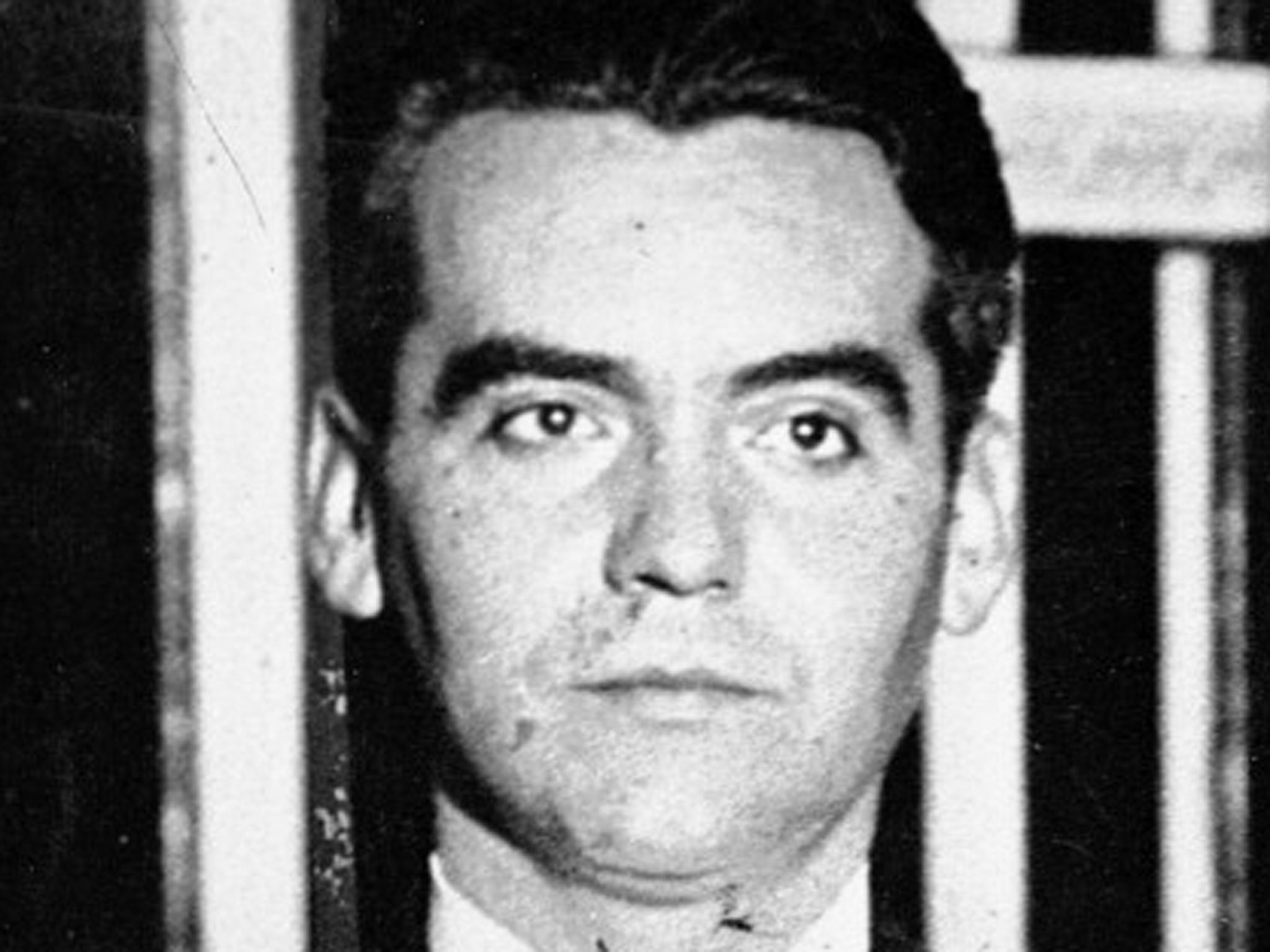Gypsy Ballads by Federico Garcia Lorca, book of a lifetime: Mixing of myth with reality
Jessica Cornwell won a university grant to analyse Lorca's 1928 collection of poetry - and embarked on a trip that would take her from Madrid to Granada

Your support helps us to tell the story
From reproductive rights to climate change to Big Tech, The Independent is on the ground when the story is developing. Whether it's investigating the financials of Elon Musk's pro-Trump PAC or producing our latest documentary, 'The A Word', which shines a light on the American women fighting for reproductive rights, we know how important it is to parse out the facts from the messaging.
At such a critical moment in US history, we need reporters on the ground. Your donation allows us to keep sending journalists to speak to both sides of the story.
The Independent is trusted by Americans across the entire political spectrum. And unlike many other quality news outlets, we choose not to lock Americans out of our reporting and analysis with paywalls. We believe quality journalism should be available to everyone, paid for by those who can afford it.
Your support makes all the difference.I turned my back on the city above the gorge. The cliffs of Ronda merged into olive trees. Behind me, my younger brother scrambled down a rocky path. When we sat on the brown earth, looking to the long valley below us, we could hear the sounds of flamenco wafting from a tinny radio, the roar of a broken moped, the soft trilling of water in the ravine.
That summer, I was in hot pursuit of the Andalusian poet and playwright Federico Garcia Lorca. I won a university grant to analyse Lorca's 1928 collection of poetry, Romancero Gitano – or Gypsy Ballads – and embarked on a trip that would take me from Madrid to Granada. I was fascinated by Lorca's use of the ballad form, his dreamy gypsies and land of terrifying violence, the Spanish Civil Guard evoked with "skulls of lead" and "souls of patent leather". I asked my younger brother, himself a poet, to accompany me.
Born 17 months apart, my brother Joshua and I are often mistaken for twins. We share the same passions and superstitious temperament. We spent a first sleepless night in Madrid at the Residencia de Estudiantes where Dali, Buñel and Lorca stayed. We met Lorca's biographer, Ian Gibson, author of The Assassination of Federico Garcia Lorca, a groundbreaking book that solved the mystery of the poet's death. (Lorca was shot by right-wing forces in 1936.)
In Granada, we went to Sacromonte, retracing the steps Lorca took with the elderly poet Ramon Menendez Pidal gathering ancient and modern ballads in the 1920s. Later, I made the pilgrimage to Lorca's birthplace in Fuente Vaqueros, where I bought a facsimile first edition of Gypsy Ballads, a pocket-sized book that still travels with me. Lorca's powerful, dynamic language – his use of magic, his mixing of myth with reality, his mysterious and indecipherable ballads where the moon hunts as a ballerina and the wind plays as a satyr – made me want to become a writer.
When I returned to university, I applied to a graduate programme in Barcelona to study theatre. Four years later, when I began writing a thriller, I again looked to Lorca for inspiration. His ballad, Martyrdom of Santa Olalla, beckoned darkly: "Olalla dead in the tree./Inkwells of the city/spill their ink slowly."
Jessica Cornwell's debut novel, 'The Serpent Papers', is published by Quercus
Join our commenting forum
Join thought-provoking conversations, follow other Independent readers and see their replies
Comments